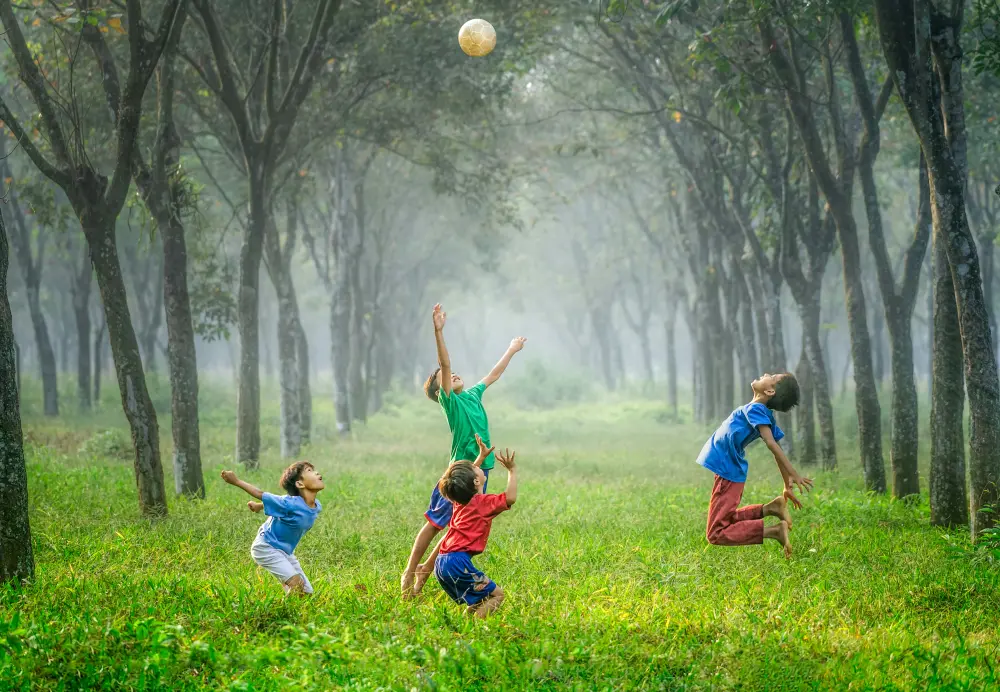Why Children Experience Time Differently Than Adults
By published
Children's understanding of time remains a largely unexplored area. Gaining insight into how they perceive time could be crucial for enhancing overall human well-being. In my home, we often discuss the varying speeds of time. My daughter insists, "Never! I'm too busy for time to feel slow, but maybe on weekends when we’re lounging on the couch watching movies." There’s a shared sentiment; both kids agree that the days following Christmas and their birthdays seem to drag as they realize they must wait another year for the next celebration. For them, years can feel interminable.
I recall similar feelings from my own childhood—long summer days filled with water play, running on freshly mowed grass, and laundry swaying in the breeze. During those moments, time felt like it was moving at a leisurely pace.
Teresa McCormack, a psychology professor at Queen's University Belfast, emphasizes that the relationship between children and time is a significant yet under-researched topic. Her studies have explored whether children possess an internal clock that operates differently from that of adults. However, many questions remain unanswered. "It's odd that we still lack clarity on when children begin to differentiate between past and future, as this distinction shapes our adult lives," McCormack notes. While we don’t fully understand when children develop a sense of linear time, we do know they are attuned to regular events like meals and bedtimes from an early age. This awareness, however, does not equate to an adult's understanding of time.
Unlike children, adults can conceptualize moments in time independently of specific events, thanks to their familiarity with clocks and calendars. Language also plays a crucial role. "Children take time to master temporal language, using words like before, after, tomorrow, and yesterday," McCormack explains. She adds that our perception of time can vary based on when we are asked to make judgments about it. For instance, "The time from my child's birth to their departure for college now seems to have passed in an instant. Yet, during the day-to-day of parenting, each day can feel endless."
Research indicates that our ability to judge the duration and speed of time develops separately. Children under six can often sense how quickly time passes in a classroom, but their perception is more closely tied to their emotions than to actual time elapsed. These two aspects converge later when children learn to connect speed with duration.
Much of the research focuses on how our experiences of time passage are influenced by how our brains process memories. Zoltán Nádasdy, an associate professor of psychology at Eötvös Loránd University in Budapest, has long been intrigued by time perception. In 1987, as an undergraduate, he led a study comparing time perception between children and adults. He sought to understand why time seems to stretch during emergencies. The experiment involved showing participants two one-minute videos and asking them which felt longer or shorter.
Decades later, Nádasdy and his team repeated the experiment, presenting an action-packed video alongside a mundane one to three age groups. The results mirrored the original findings: younger children perceived the exciting video as longer, while most adults felt the opposite.
The study revealed that, lacking a sensory organ to measure time, humans rely on other indicators. "Our direct sensory experience of time is always indirect, meaning we must find something we believe correlates with time," Nádasdy explains. For children, this often involves their ability to articulate their experiences.
This understanding shifts once children enter school, where they begin to learn about schedules and absolute time. "School doesn’t provide a true sense of time; it merely replaces one heuristic with another," Nádasdy notes. McCormack identifies two additional factors influencing children's time perception: their control processes differ from adults, making them more impatient and less able to wait. Their attentional focus also plays a role; the more attention they give to a time period, the slower it seems to pass.

Research by Sylvie Droit-Volet and John Wearden has shown that adults experience similar fluctuations in time perception, which correlate more with emotional states than with age. Essentially, happiness can make time feel like it’s flying, while sadness can make it drag. This was particularly evident during lockdowns, where increased stress and fewer activities led to a perceived slowing of time.
Physical experiences can also alter time perception. For instance, watching a scary movie can make time feel elongated, as can viewing disturbing images. Unpleasant experiences, like a crowded train ride, often feel longer than more pleasant journeys.
Adrian Bejan, a mechanical engineering professor at Duke University, offers a perspective on how aging affects time perception. He theorizes that as we age, the pathways for processing visual information become more complex and less efficient, leading to a sensation of compressed time. Studies suggest a link between declines in the optic nerve and slower information processing, but further research is needed.
The nature of what we observe can also influence our perception of time. A study from George Mason University found that larger, memorable scenes can make time feel longer, while cluttered environments can have the opposite effect.
Our hearts provide vital signals to our brains regarding time passage; our perception of duration can shift with our heartbeat rhythm. As we age, our heart rate typically decreases, which may contribute to our altered sense of time.
Additionally, as we grow older, our routines often become less flexible. Research indicates that increased time pressure, boredom, and routine can accelerate our perception of time, especially for those who focus more on future events rather than living in the moment.
Ultimately, what we engage in at present significantly shapes our understanding of time, regardless of age. As mental demands rise, we often underestimate how long tasks take. For example, a thrilling two-week summer camp may create more lasting memories than an entire school year. Nádasdy suggests that these vivid memories occupy more brain space due to the multitude of experiences packed into a short timeframe.
McCormack posits that our assessments of time may reflect the number of significant events we recall. For older adults, a lack of major life changes over the past decade can make time feel like it has passed quickly. Conversely, significant events can create lasting impressions, much like those from a memorable summer camp.
Is it possible for adults to recapture the sensation of slowed time reminiscent of childhood? Some studies suggest that physical activity can help enhance our perception of time, while excessive fatigue can have the opposite effect. "To slow down time, try to break free from routine," Nádasdy advises. "Embrace surprises, engage in new activities, and share your ideas or experiences."
More news






